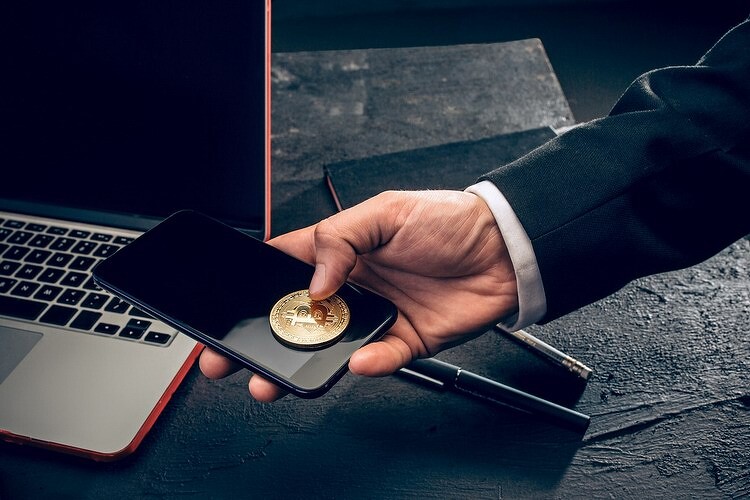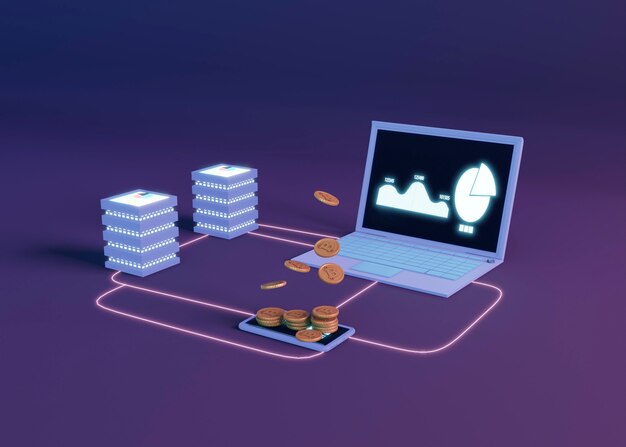Top 10 No-KYC Crypto Exchanges for Smooth Crypto Purchase in 2024 buy Crupto
Embarking on the journey of navigating the cryptocurrency world can be a daunting task. While the concept of acquiring digital assets without going through the Know Your Customer (KYC) process may seem challenging, there are alternative methods available that guarantee privacy and anonymity.
By circumventing traditional verification procedures, individuals can safeguard their personal information while still actively participating in the cryptocurrency market. This comprehensive guide will walk you through the steps required to obtain cryptocurrency without the need for KYC, ensuring that your digital transactions remain anonymous.
Discover how to secure your financial privacy and immunize yourself against potential data breaches by exploring alternative avenues for acquiring cryptocurrency. We will delve into the benefits and risks associated with sidestepping KYC procedures, equipping you with the knowledge needed to make informed decisions in the crypto realm.
Unlock the secrets of purchasing digital assets incognito, as we unravel time-tested strategies that grant individuals the liberty to preserve their anonymity in a fast-evolving financial ecosystem. Empower yourself with the skills and tools needed to navigate the complex web of cryptocurrency acquisition without compromising your privacy.
Understanding KYC and its Role in Crypto Transactions
In the world of cryptocurrency, Know Your Customer (KYC) plays a crucial role in ensuring secure and transparent transactions. Although the concept of KYC may seem daunting, it serves as a fundamental measure to protect both users and businesses in the crypto space.
KYC refers to the process of verifying the identity of individuals engaging in financial transactions. It involves collecting and verifying personal information, such as identification documents, proof of address, and sometimes even biometric data. The main purpose of KYC is to mitigate the risk of fraud, money laundering, and other illicit activities.
By implementing KYC procedures, crypto platforms and exchanges can establish a level of trust and accountability with their users. It allows them to comply with regulatory requirements, such as anti-money laundering (AML) and counter-terrorism financing (CTF) regulations.
When you participate in a crypto transaction that requires KYC, you may need to provide various forms of identification, such as a government-issued ID card or passport. Some exchanges may also request additional documents, such as utility bills or bank statements, to verify your address. These measures help prevent identity theft and unauthorized access to your account.
Moreover, KYC helps to ensure that cryptocurrencies are not used for illegal activities, such as funding terrorism or money laundering. By verifying users’ identities, crypto platforms can monitor and track transactions, making it more difficult for criminals to exploit the anonymity often associated with cryptocurrencies.
Although KYC can be seen as an inconvenience to some users who prioritize privacy, it is an essential aspect of the crypto ecosystem. Striking a balance between privacy and security is crucial for the mainstream adoption of cryptocurrencies. As regulators continue to develop guidelines for the crypto industry, KYC is likely to play an even more significant role in the future.
Overall, understanding KYC and its role in crypto transactions is vital for both users and businesses. It enables secure and legitimate cryptocurrency trading while ensuring compliance with regulations. Embracing KYC measures can help create a safer and more trustworthy environment for all participants in the crypto space.
Exploring Anonymous Cryptocurrencies and their Advantages
When it comes to cryptocurrencies, anonymity has become a crucial feature for many individuals. In this section, we will delve into the world of anonymous cryptocurrencies and explore their unique advantages and benefits.
Anonymity in Cryptocurrencies
One of the key aspects that sets certain cryptocurrencies apart is their ability to provide users with a high level of privacy and anonymity. Unlike traditional financial systems that often require personal identification and extensive documentation, anonymous cryptocurrencies offer a way to transact and hold assets without revealing personal details.
By leveraging advanced encryption techniques and decentralized networks, these anonymous cryptocurrencies ensure that users can engage in secure and private transactions. This anonymity feature has gained significant popularity, as it allows individuals to protect their financial privacy, shield themselves from potential surveillance, and maintain control over their personal information.
Advantages of Anonymous Cryptocurrencies
Embracing anonymous cryptocurrencies offers numerous advantages for users seeking enhanced privacy and security. Let’s explore some of the main benefits:
-
Financial Privacy: Anonymous cryptocurrencies enable individuals to keep their financial transactions private, shielding them from potential third-party interference and invasive surveillance. This enables greater control over personal financial information and minimizes the risk of identity theft or data breaches.
-
Censorship Resistance: By utilizing anonymous cryptocurrencies, users can avoid censorship and restrictions imposed by centralized authorities. Transactions cannot be easily tracked, blocked, or reversed, allowing for unrestricted financial freedom.
-
Global Accessibility: Anonymous cryptocurrencies provide individuals with a borderless financial solution, allowing for seamless global transactions without the limitations of traditional banking systems. This can be particularly beneficial for individuals in countries with strict financial regulations or limited access to banking services.
-
Security: With the use of cutting-edge encryption techniques and decentralized networks, anonymous cryptocurrencies offer enhanced security for users. The technology ensures that transactions are tamper-proof and resistant to hacking attempts, providing peace of mind to individuals holding and transacting with these currencies.
Overall, anonymous cryptocurrencies present a compelling option for individuals who value their financial privacy, security, and freedom. By exploring and utilizing these cryptocurrencies, users can embrace the advantages they offer and take control of their financial transactions in an increasingly interconnected and digital world.
Choosing the Right Crypto Exchange without KYC Requirements
Ensuring privacy and anonymity while engaging in cryptocurrency transactions is a priority for many individuals. This section aims to guide you in selecting the most suitable cryptocurrency exchange that does not require the time-consuming and intrusive Know Your Customer (KYC) process.
When it comes to choosing a crypto exchange without KYC requirements, it is essential to consider several factors. Firstly, examine the exchange’s reputation and reliability in the cryptocurrency community. Look for user reviews and feedback to gain insights into the platform’s performance, security measures, and customer support.
Additionally, evaluate the range of cryptocurrencies offered by the exchange. Some platforms may restrict the variety of digital assets available for trading, so ensure the exchange supports the specific cryptocurrencies you intend to transact with.
Furthermore, consider the exchange’s liquidity and trading volume. Higher liquidity and trading volumes generally indicate a more active market, better price stability, and smoother transactions. This factor is crucial to avoid potential hurdles while buying or selling cryptocurrencies.
Another crucial aspect is the exchange’s security measures. Look for platforms that provide robust security features, such as two-factor authentication (2FA), encryption protocols, cold storage of funds, and regular security audits. These measures significantly reduce the risk of unauthorized access or theft of your cryptocurrencies.
Moreover, pay attention to transaction fees imposed by the exchange. Evaluate the fee structure, including deposit, withdrawal, and trading fees, to ensure that they align with your trading preferences and budget. Some crypto exchanges may charge higher fees for the convenience of not requiring KYC verification, so compare fees across various platforms before making a decision.
Lastly, consider the ease of use and functionality of the exchange’s platform. A user-friendly interface, intuitive navigation, and convenient order placement can greatly enhance your trading experience. Take advantage of demo accounts or trial periods offered by some exchanges to assess their platform’s usability.
By carefully considering these factors, you can confidently choose a crypto exchange without KYC requirements that meets your specific needs and priorities. Remember to conduct thorough research and exercise caution while engaging in cryptocurrency transactions to ensure a secure and seamless experience.
Setting Up a Wallet for Anonymous Cryptocurrency Transactions
In this section, we will discuss the process of setting up a wallet specifically designed for ensuring anonymity in cryptocurrency transactions. By using such a wallet, you can protect your identity and maintain privacy while engaging in digital asset transfers.
1. Select a privacy-focused wallet:
- Look for wallets that prioritize privacy and anonymity features.
- Choose wallets that offer features like coin mixing, multiple address generation, and encryption.
2. Research wallet options:
- Conduct thorough research on different wallet options available.
- Compare their features, security measures, and user reviews to make an informed decision.
3. Download and install the chosen wallet:
- Visit the official website of the wallet provider.
- Download the wallet application compatible with your operating system.
- Follow the installation instructions provided by the wallet provider.
4. Create a new wallet:
- Launch the wallet application.
- Choose the option to create a new wallet.
- Follow the on-screen instructions to generate a new wallet address.
5. Back up your wallet:
- Enable the option to create a backup of your wallet.
- Store the backup file securely in multiple locations.
- Keep the backup file password-protected.
6. Utilize additional security measures:
- Enable two-factor authentication (2FA) for an added layer of security.
- Consider using hardware wallets or other offline storage options.
- Regularly update your wallet software to ensure the latest security patches.
7. Be mindful of transaction privacy:
- Avoid reusing wallet addresses for multiple transactions.
- Utilize features like coin mixing to enhance transaction privacy.
- Stay informed about new privacy-enhancing technologies and implement them when available.
By following these steps and setting up a wallet designed for anonymous cryptocurrency transactions, you can take control of your privacy and protect your identity while engaging in the world of digital currencies.
Purchasing Crypto without KYC: Step-by-Step Process
Exploring alternative ways to acquire digital currencies while bypassing the traditional Know Your Customer (KYC) process is a topic of increasing interest. This guide aims to provide a comprehensive step-by-step process for purchasing cryptocurrencies without having to go through KYC procedures. By following the outlined steps, users can maintain a level of privacy and anonymity in their crypto transactions.
Step 1: Selecting a Peer-to-Peer (P2P) Exchange
The first step in purchasing crypto without KYC is to choose a suitable peer-to-peer exchange platform. P2P exchanges facilitate direct transactions between buyers and sellers, eliminating the need for intermediaries that typically enforce KYC regulations. Look for platforms that prioritize user privacy and offer secure trading environments.
Step 2: Creating an Account
Once a P2P exchange is selected, the next step involves creating an account on the platform. Registering typically requires providing an email address and setting up a secure password. It’s important to use a unique and strong password to protect the account from unauthorized access.
Avoid using personal information as part of the account registration process, as this can compromise privacy. Instead, opt for pseudonyms or usernames that don’t reveal personal details.
Step 3: Verifying the Account (Optional)
While some P2P exchanges may not require any verification process, others may have optional verification levels that offer additional benefits. However, it’s essential to carefully review the platform’s privacy policy and determine if providing additional personal information is worth the advantages of higher account limits or enhanced security features.
Step 4: Finding Suitable Sellers
After setting up the account, users can begin searching for suitable sellers who are willing to trade crypto without requiring KYC. P2P exchanges usually have search filters that allow users to find relevant sellers based on preferred payment methods, currency pairs, and transaction volume limits. It’s important to review seller profiles, ratings, and feedback from other buyers to ensure a trustworthy and reliable trading experience.
Step 5: Initiating and Completing the Transaction
Once a suitable seller is found, initiate the purchase by specifying the desired amount of crypto and agreeing on the payment method. Ensure clear communication with the seller to discuss transaction details and avoid any misunderstandings.
When the terms are agreed upon, proceed with the payment according to the chosen method. It is important to exercise caution and only use trusted and secure payment options to minimize the risk of fraud or scams.
After the payment is made, the seller will release the purchased crypto, and it will be transferred to the buyer’s wallet. Confirm the receipt of the crypto and securely store it in a wallet that you control.
Step 6: Ensuring Security and Privacy
As with any online transaction involving digital assets, it is crucial to prioritize security and privacy. Make sure to use a reputable and secure wallet for storing the purchased crypto, preferably one that offers strong encryption and multiple layers of protection. Additionally, consider utilizing tools like VPNs and secure browsing methods to enhance privacy and minimize the risk of exposing personal information.
| Step | Action |
|---|---|
| Step 1 | Select a Peer-to-Peer exchange. |
| Step 2 | Create an account with a unique username and password. |
| Step 3 | Verify the account if desired, but review privacy implications. |
| Step 4 | Find suitable sellers based on preferences and reputation. |
| Step 5 | Initiate and complete the transaction with clear communication. |
| Step 6 | Ensure security and privacy in storing and accessing the acquired crypto. |
Ensuring Security and Privacy in Anonymous Crypto Transactions
In the realm of anonymous cryptocurrency transactions, ensuring the utmost security and privacy is paramount. This section delves into the measures and strategies that can be implemented to safeguard these transactions, without compromising on anonymity.
1. Choosing the Right Cryptocurrency: When engaging in anonymous crypto transactions, it is crucial to select a cryptocurrency that aligns with your security and privacy requirements. Look for cryptocurrencies that prioritize privacy-enhancing features such as stealth addresses, ring signatures, and zero-knowledge proofs.
2. Utilizing Decentralized Exchanges: Opt for decentralized exchanges that do not require KYC information to maintain the anonymity of your transactions. These platforms operate on peer-to-peer networks, allowing you to trade cryptocurrencies directly with other users while minimizing the risk of identity exposure.
3. Utilizing Privacy Coins: Privacy coins like Monero, Zcash, and Dash offer enhanced privacy features that make it difficult to trace transactions back to their origin. By utilizing privacy coins, you can ensure a higher level of anonymity during your crypto transactions.
4. Employing Mixing Services: Mixing services, also known as tumblers, can help break the link between your original cryptocurrency address and the destination address. These services mix your coins with those of other users, making it challenging to trace the flow of funds and ensuring enhanced privacy.
5. Using Anonymous Wallets: Opt for anonymous wallets that prioritize your security and privacy. These wallets provide features such as generating new addresses for each transaction, utilizing Tor or VPN connections, and encrypting your private keys, thereby reducing the risk of unauthorized access.
6. Implementing Good Security Practices: It is crucial to implement good security practices to minimize the risk of hacking or unauthorized access to your cryptocurrency holdings. This includes regularly updating your software and wallets, using strong and unique passwords, enabling two-factor authentication, and storing your private keys offline.
7. Staying Informed: Stay updated with the latest developments in the field of anonymous crypto transactions to identify new security vulnerabilities or emerging privacy-enhancing technologies. Engage with the community, read reputable sources, and participate in forums or communities dedicated to anonymous cryptocurrency transactions.
By following these strategies and taking appropriate precautions, individuals can ensure the security and privacy of their anonymous crypto transactions. However, it is important to remember that even with these measures in place, absolute anonymity can never be guaranteed, and it is essential to stay vigilant and informed.
Questions and answers: Buy crypto without kyc
Can I buy crypto without going through the KYC process?
Yes, you can buy crypto without going through the KYC process. There are several platforms and methods available that allow users to purchase cryptocurrencies anonymously without providing their personal information.
What is KYC and why is it required?
KYC stands for Know Your Customer, and it is a process that requires individuals to provide their personal information to crypto exchanges and platforms. KYC is required as part of anti-money laundering (AML) and counter-terrorism financing (CFT) regulations to ensure that cryptocurrency transactions are not used for illegal activities.
Are there any risks involved in buying crypto without going through KYC?
Yes, there are certain risks involved in buying crypto without KYC. Since anonymous transactions provide less transparency, it may be harder to track fraudulent activities or recover funds in case of any issues. Additionally, some countries have strict regulations regarding anonymous crypto transactions, which could lead to legal consequences.
What are some methods to buy crypto without KYC?
There are a few methods to buy crypto without KYC. Peer-to-peer (P2P) exchanges, decentralized exchanges (DEXs), and using privacy-focused cryptocurrencies are some options. P2P exchanges allow users to buy crypto directly from other individuals without the involvement of a centralized intermediary. DEXs facilitate trades directly from users’ wallets, avoiding the need for KYC. Privacy-focused cryptocurrencies, such as Monero or Zcash, offer enhanced anonymity.
Is it legal to buy crypto without KYC?
The legality of buying crypto without KYC varies by country. While some jurisdictions have strict regulations that require KYC for all crypto transactions, others may have more relaxed policies. It is important to research and understand the legal and regulatory framework of your specific country or region before engaging in anonymous crypto transactions.
What is KYC and why is it important?
KYC stands for Know Your Customer, which is a process used by financial institutions and cryptocurrency exchanges to verify the identity and personal information of their customers. It is important because it helps prevent money laundering, fraud, and other illegal activities.
Is it possible to buy cryptocurrencies without going through the KYC process?
Yes, it is possible to buy cryptocurrencies without going through the KYC process. There are certain peer-to-peer platforms and decentralized exchanges that allow users to trade cryptocurrencies without requiring KYC verification.
What are the implications of KYC (Know Your Customer) requirements for cryptocurrency exchanges, especially considering privacy concerns in 2024?
In 2024, KYC requirements on exchanges continue to raise privacy concerns among crypto traders due to the collection and storage of personal information.
How do KYC exchanges differ from non-KYC exchanges, and why might traders prefer one over the other?
KYC exchanges require users to verify their identity before trading, while non-KYC exchanges allow users to trade without identity verification. Traders may prefer non-KYC exchanges for increased privacy and anonymity.
What are some popular centralized exchanges in 2024, and what factors contribute to their popularity among crypto traders?
Popular centralized exchanges in 2024 include platforms like Binance, Coinbase, and Kraken, known for their liquidity, security, and wide range of supported cryptocurrencies.
How does the availability of crypto wallets impact trading on exchanges, especially for traders looking to maintain control over their assets?
Crypto wallets provide traders with a secure means of storing and managing their digital assets outside of exchanges, allowing them to maintain control over their funds and trade with flexibility.
What strategies do crypto traders employ to avoid KYC requirements on exchanges while navigating the crypto market?
Some traders opt for non-KYC exchanges, utilize decentralized exchanges (DEXs), or employ peer-to-peer (P2P) trading methods to avoid KYC requirements while trading in the crypto market.
What considerations should traders keep in mind when choosing the best crypto exchange for their trading needs in 2024?
Traders should consider factors such as security, liquidity, supported cryptocurrencies, trading fees, user experience, and regulatory compliance when selecting a crypto exchange.
How does the rise of decentralized finance (DeFi) platforms impact the landscape of crypto trading and exchange options in 2024?
DeFi platforms offer decentralized alternatives to traditional exchanges, allowing users to trade without needing to undergo KYC procedures and providing access to various financial services.
What role do crypto traders play in shaping the demand for KYC and non-KYC exchanges in the evolving crypto market?
Crypto traders’ preferences for privacy, security, and convenience influence the demand for KYC and non-KYC exchanges, driving innovation and competition in the crypto exchange sector.
How do regulatory developments and compliance requirements affect the operations of crypto exchanges, particularly regarding KYC procedures?
Regulatory developments may impose stricter KYC requirements on exchanges to enhance transparency and combat illicit activities, impacting the user experience and accessibility of trading platforms.
What trends do you foresee in the evolution of crypto exchanges and trading practices as the market continues to mature in 2024?
In 2024, we may see continued innovation in crypto exchanges, with a focus on enhancing user privacy, security, and accessibility. Decentralized and non-custodial trading solutions may gain popularity, offering traders more control over their assets and trading activities.
What are no-KYC crypto exchanges, and how do they differ from traditional exchanges that require KYC verification?
No-KYC crypto exchanges allow users to trade cryptocurrencies without undergoing the Know Your Customer (KYC) verification process, providing greater privacy and anonymity compared to exchanges that require KYC.
What are some of the best no-KYC crypto exchanges available for crypto investors seeking to trade without undergoing KYC verification?
Some popular options for no-KYC crypto exchanges include platforms like Binance DEX, Bisq, Hodl Hodl, LocalCryptos, and LocalBitcoins.
How do no-KYC crypto exchanges handle regulatory requirements and compliance with tax regulations, especially regarding crypto taxation?
No-KYC crypto exchanges may have varying approaches to regulatory compliance and tax reporting, with users typically responsible for tracking and reporting their crypto transactions for tax purposes.
What role do no-KYC crypto exchanges play in the crypto world, and what advantages do they offer for traders and investors?
No-KYC crypto exchanges provide an alternative trading option for individuals seeking to maintain their privacy and anonymity while trading cryptocurrencies, offering greater flexibility and autonomy.
Why do some crypto investors prefer to trade on no-KYC exchanges, and what risks should they consider?
Some crypto investors prefer no-KYC exchanges due to concerns about privacy and the desire to avoid sharing personal information. However, they should be aware of potential risks such as regulatory scrutiny and security vulnerabilities.
How do centralized and decentralized exchanges differ in their approach to KYC verification, and what are the implications for users?
Centralized exchanges typically require mandatory KYC verification, while decentralized exchanges may offer no-KYC trading options. This difference affects user privacy and the level of control over personal data.
Can crypto investors buy and sell cryptocurrencies without completing the KYC process on no-KYC exchanges, and how do these exchanges enforce compliance?
Yes, users can typically buy and sell cryptocurrencies on no-KYC exchanges without completing KYC verification. However, these exchanges may have limits on transaction volume or withdrawal amounts for non-KYC users.
What are some of the top recommendations for the best no-KYC crypto exchanges in 2024, considering factors such as security, liquidity, and supported cryptocurrencies?
Some top recommendations for no-KYC crypto exchanges include platforms like Binance DEX, Bisq, Hodl Hodl, and LocalCryptos, known for their user-friendly interfaces and wide range of supported assets.
How do crypto trading bots operate on no-KYC exchanges, and what advantages do they offer for traders?
Crypto trading bots can automate trading strategies on no-KYC exchanges, providing traders with increased efficiency, round-the-clock trading capabilities, and the ability to execute trades based on predetermined parameters.
What precautions should crypto investors take when trading on no-KYC exchanges to ensure security and compliance with applicable regulations?
Crypto investors should exercise caution when trading on no-KYC exchanges, conducting thorough research on the platform’s reputation, security measures, and regulatory compliance. Additionally, they should implement proper security measures to safeguard their funds and personal information.








No responses yet